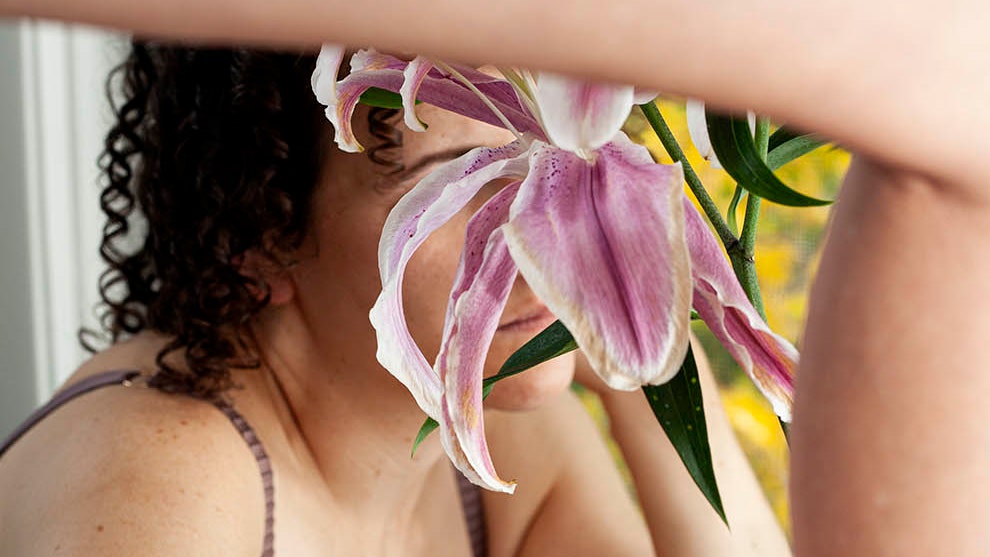[ad_1]
In the series What it Means to Be Here, PhotoVogue artist Jeanette Spicer encompasses photographs, mixed media and videos to engage with the absence of the lesbian gaze and the long history of patriarchal constructs that shape our ideas of the female form.
Spicer captures the intimacy between lesbian, bisexual and queer women throughout her community of lovers and friends. Her series emphasizes a sense of ordinariness and reverence for sex, pleasure with agency and spontaneity, calling into question the lack of lesbian representation within the photographic medium.
Historically considered as places of isolation and confinement for women, the interiors of her work represent independence and a reclaiming of ownership, while the exteriors, sometimes shot in gay male cruising sites, offer an opportunity to explore these sexual playgrounds dominated by men and wonder why women don’t have these spaces.
Read our Q&A with the artist to learn more.
When did you start working on the series What it Means to Be Here? How was the idea born?
I started working on the series What It Means To Be Here in 2018. The idea was born from a previous series about my first girlfriend. I was coming to terms with being a lesbian at that time, about ten years ago, and as I have gotten older and evolved, I realized that this awareness could come into my art. With this in mind, I began asking friends, lovers and people I knew from my community to be a part of this project.
How much is this project connected to your personal life?
This project is my personal life. The people in my work are a mix of friends, lovers, mentors and family. Even though some subjects come into and out of my life, and sometimes, back again, they have all meant a great deal to me not only as people, but their willingness to give me their time in the name of lesbian, bi and queer female representation. As a lesbian, particularly as a lesbian artist, I look back to the photographic/artistic history of my community and find very little. I don’t want to undermine or discount the incredible, moving and necessary work that previous generations of lesbians have made, but we are written out of, invisibilized and pushed to the margins in general, and even more so in the art world. Because of that, I feel a responsibility to represent my experience, for myself, my community, my elders and the future generations.
[ad_2]
